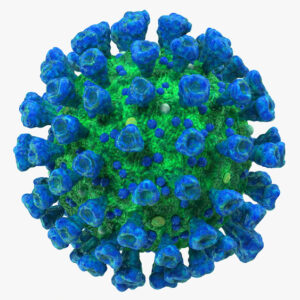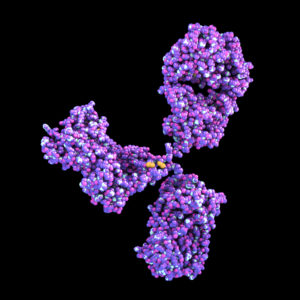Astrovirus
Astroviruses are an important cause of acute diarrhea, especially in children.
Our Astrovirus product range includes a native Astrovirus antigen preparation alongside highly specific monoclonal antibodies, supporting both research studies and assay development.
Astrovirus Background
Human astrovirus (HAstV) is a group of positive-sense single stranded RNA viruses that belong to the Astroviridae family of viruses. Originally identified in stools from infected children, astrovirus has since been found to infect mammalian and avian species, with two additional genera, Mamastrovirus (MAstV) and Avastrovirus (AAstV) now recognised (Bosch, A et al). Human astroviruses, of the genera Mamastrovirus, predominantly infect young children below five years of age and cause mild symptoms of diarrhoea, vomiting and fever. HAstV infection can also cause gastro-intestinal illness in immunocompromised adults, which may be more severe and longer in duration (Vu, DL et al 2016).
Initial immunological studies identified eight distinct serotypes of HAstV that cause diarrhoea in children. These serotypes are now referred to as classic HAstV’s. Subsequent phylogenetic studies identified two novel groups of astroviruses that also infect children. These novel HAstV’s were first identified in Melbourne Australia (HAstV-MLB) and in Virginia, Nigeria, Pakistan and Nepal (HAstV-VA/HMO). Currently, very little is known about the epidemiology or pathogenesis of novel HAstV’s , but studies suggest that novel HAstV’s may cause clinical complications affecting the central nervous system in immunocompromised patients (Vu, DL et al 2017).
References
- Bosch, A et al (2014). Human Astroviruses. Clin Microbiol Rev. 27: 1048–1074.
- Vu, DL et al (2016). Novel human astroviruses: Novel human diseases? J Clin Virol. 82:56-63
- Vu, DL et al (2017). Epidemiology of Classic and Novel Human Astrovirus: Gastroenteritis and Beyond. Viruses 9: 33.
Astrovirus Antigens
Our Astrovirus antigen is a preparation of concentrated native viral particles from host cell lysate, suitable for use in immunoassay development.
Astrovirus Antibodies
Astrovirus antibodies recognise non-enveloped, positive-sense single stranded RNA viruses that belong to the Astroviridae family. Originally identified in stools from infected children, astroviruses have since been found to infect numerous mammalian and avian species, and have been classified into two genera Mamastrovirus (MAstV) and Avastrovirus (AAstV).
Our mouse anti-astrovirus antibody (clone AT54) does not cross-react with rotavirus, adenovirus, Clostridium difficile, Cryptosporidium, Enterovirus, Escherichia coli, Giardia, Helicobacter pylori, Listeria monocytogenes, norovirus, Yersinia enterocolitica or hepatitis A virus (HAV).
Questions?
Check out our FAQ section for answers to the most frequently asked questions about our website and company.


